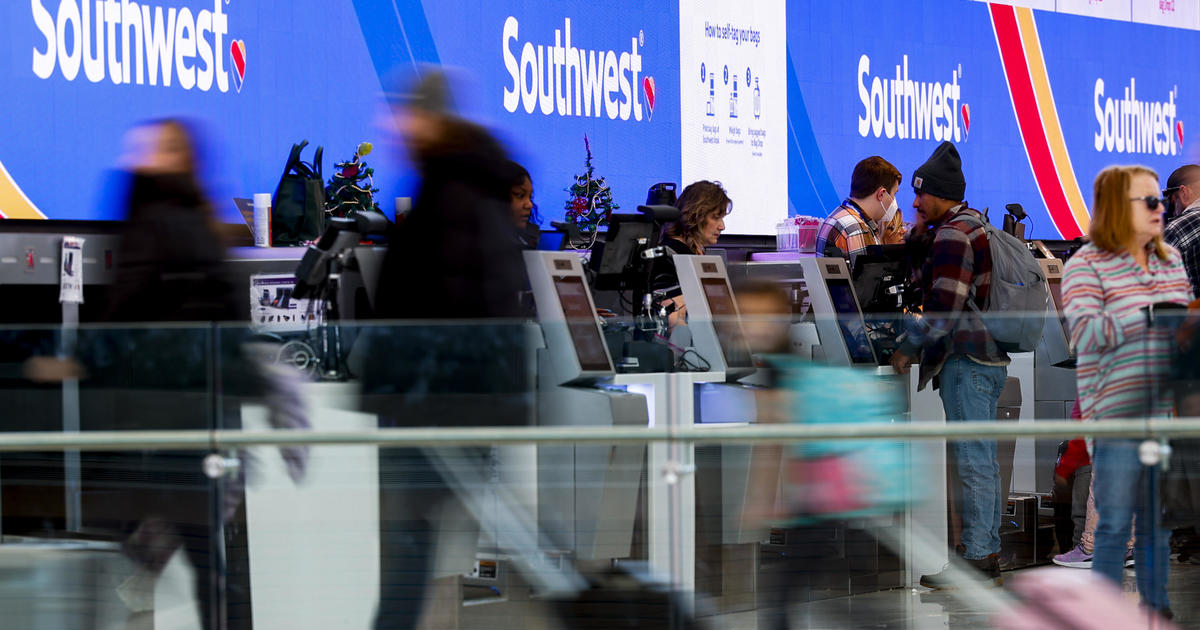Winter weather advisory for dangerous cold and wintry mix
Frigid temperatures and blistering winds continued to disrupt air travel for a third straight day as airlines scratched thousands of flights amid a brutal bout of winter weather.
As of 5:01 p.m. Eastern Time carriers had canceled nearly 2,700 flights into and out of the U.S. on Monday and delayed roughly 7,000 others, according to data from FlightAware shows. The arctic blast, which began Friday, caused thousands more flight cancellations and more than 16,000 delays over the weekend, according to the tracking service.
As of early Monday, 142 million people in the U.S. were under wind chill alerts, while 100 million had received winter weather alerts, according to CBS New senior weather and climate producer David Parkinson. The bitter cold and snow, which has shuttered schools, blocked roads and knocked out power in a number of states, is expected to taper off around midweek.
But before it recedes the storm could bring sub-zero temperatures to some southern states, while bone-chilling winds blowing from the Northern Rockies and into Iowa could plunge temperatures to a near-record low of around 30 degrees below zero in the Midwest, according to the National Weather Service. The freezing temperatures come as Iowa voters kick off the Republican presidential contest, raising concerns about voter turnout.
Travelers in some cities took the brunt of the harsh conditions. At Chicago's Midway International Airport, 30% of flights were canceled, while 11% of flights at the city's O'Hare International were scrapped, according to FlightAware.
"Severe winter weather has caused delays across our operations including at Chicago O'Hare and George Bush Intercontinental Airport," United Airlines said in a statement Monday. "Our operations team continues to monitor weather developments across the country and adjust our schedule accordingly."
Airlines also nixed roughly a fifth of flights at Dallas Love Field Airport, Buffalo Niagara International Airport and Nashville International Airport.
Southwest Airlines on Monday canceled 400 trips, or 16% of its daily scheduled flights, the most of any major U.S. airline. The cancellations mark the latest of several snafus that have affected the airline's flight schedules in recent years as it struggles with software system issues and worker shortages.
The deep freeze isn't the only factor behind the recent rash of flight cancellations and delays. Hundreds of flights operated by Alaska Airways and United Airlines' were canceled last week after the Federal Aviation Administration ordered the grounding of both airlines' Boeing 737 Max 9 aircrafts.
The orders came after a "door plug" fell off an Alaska Airlines Max 9 plane during a flight earlier this month, prompting the FAA to launch an investigation into the planes' manufacturing.
Thanks for reading CBS NEWS.
Create your free account or log in
for more features.

